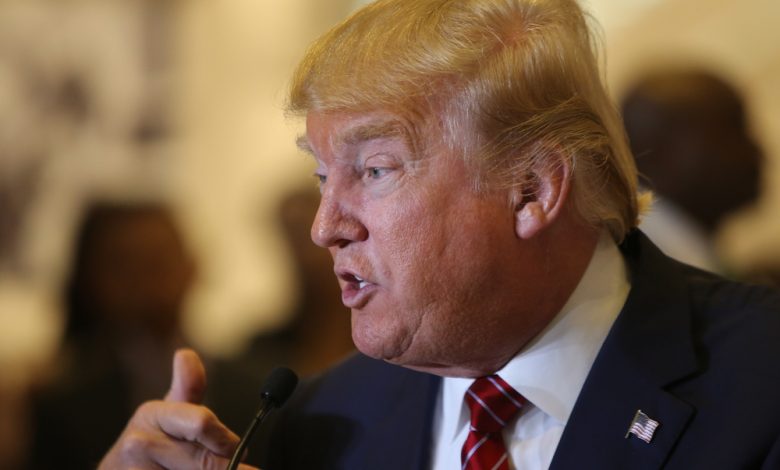
Democrats and Republicans are fond of accusing each other of lying. Which side is correct? Is Biden the biggest liar? Is Trump? How can voters determine if the accusation of lying is justified? The key to figuring this out is understanding the difference between a lie and an exaggeration.
Lying and exaggerating are different forms of the same thing—misrepresentation. What differentiates them is intent. A lie is a statement used intentionally for the purpose of deception. It is an assertion of something known or believed by the speaker or writer to be untrue with intent to deceive. Here are some examples of political lies:
Barack Obama: “If you like your plan, you can keep your plan.” Obama knew that, under Obamacare, you would not be able to keep your plan.
Bill Clinton: “I did not have sexual relations with that woman, Miss Lewinsky.” No kidding.
Black Lives Matter: “There is an epidemic of cops shooting unarmed black men.” The statistics say otherwise. This is a false narrative used as an excuse for violent rioting.
Kamala Harris: “The president’s mismanagement of the pandemic has plunged us into the worst economic crisis since the Great Depression.” Actually the pandemic and its associated lockdowns, not the president, were responsible for the economic contraction.
Joe Biden: “The NAACP has endorsed me every time I’ve run.” No sir. Biden has made a career out of lying—from his statement that he graduated in the top half of his law school class, to his assertion that he marched in the civil rights movement, to his claim that he was arrested in South Africa.
Every one of those statements was deliberately designed to deceive the public. When it comes to deception, Biden and the Democrats are the world champs. An exaggeration, on the other hand, is a statement or claim not meant to be taken literally. “We all have a tendency to exaggerate,” according to Google. “It makes our stories funnier, or more dramatic. After all, when you exaggerate, you're not really lying—you're just overstating things.”
When Trump is accused of lying, in almost all instances he is not lying—he is exaggerating. Trump’s specialty is hyperbole, a form of extreme exaggeration used to make a point or show emphasis. For example, Muhammad Ali was fond of claiming, “I am the greatest!” Some would agree, others would not. The lack of agreement does not make it a lie.
Political hyperbole is an everyday phenomenon. Herbert Hoover was famous for promising, “A chicken in every pot.” While Biden and the Democrats are world champs at lying, Donald Trump is the master of hyperbole. “I am the greatest jobs president God ever created.” “This is the greatest economy in the history of America.” In his book The Art of the Deal, Trump explains it:
“A little hyperbole never hurts. People want to believe that something is the biggest and the greatest and the most spectacular. I call it truthful hyperbole. It’s an innocent form of exaggeration—and a very effective form of promotion.”
The key to understanding Trump’s personal style is becoming aware of truthful hyperbole.
“Most Americans can see the difference between an out-and-out lie and self-evident hyperbole, even if the mainstream press and Trump’s political opponents cannot or will not,” Lee Edwards writes at heritage.org. “His constant use of hyperbole makes him seem emotionally transparent—and maybe incapable of maintaining a lie, even in his own self-interest,” said Ryan Skinnell in citizencritics.org. “He knows he’s not telling the factual truth, but he seems to be telling the kind of emotional truth associated with hyperbole.”
Left-wing news sources love to accuse Trump of lying, but, as Steve Goldstein pointed out in MarketWatch, these so-called fact checkers “have a reflexive bias toward declaring Trump comments as untrue.” An example of an alleged lie is Trump’s statement that, “The economy is roaring.” The Washington Post, leader of the Trump “fact checkers,” claims that the economy is actually slowing. Goldstein says Trump’s assertion cannot be called out as a lie because “’roaring’ is subjective but not false with low unemployment, high GDP.”
Trump counselor Kellyanne Conway has blamed reporters for being harder on Trump than on Democrats. “Has the president said something that even comes close to, ‘It was a videotape that caused the loss of life of four people in Benghazi’? Has he said anything close to, ‘You can keep your plan, you can keep your doctor’?” Conway said, referring to lies by Hillary Clinton and Barack Obama.
“Donald Trump may be remembered as the most honest president in modern American history,” according to Washington Post columnist Marc Thiessen. “When it comes to the real barometer of presidential truthfulness—keeping his promises—Trump is a paragon of honesty. For better or worse, since taking office Trump has done exactly what he promised he would do.” Trump promised to pass major tax reforms, to impose a ban on countries that export terrorism, to nominate conservative Supreme Court justices, to bring jobs back, to renegotiate unfavorable trade deals, to move the US embassy from Tel Aviv to Jerusalem. He kept these promises.
“But whether one agrees or disagrees is not the point. When Trump says he will do something, you can take it to the bank,” says Thiessen. “Yes, he takes liberties with the truth. But unlike his predecessor, he did not pass his signature legislative achievement on the basis of a lie (“If you like your health care plan, you can keep it”)—which is clearly worse than falsely bragging that your tax cut is the biggest ever. The fact is, Trump has compiled a remarkable record of presidential promise-keeping.”





Leave a Reply
Thank you for your response.
Please verify that you are not a robot.